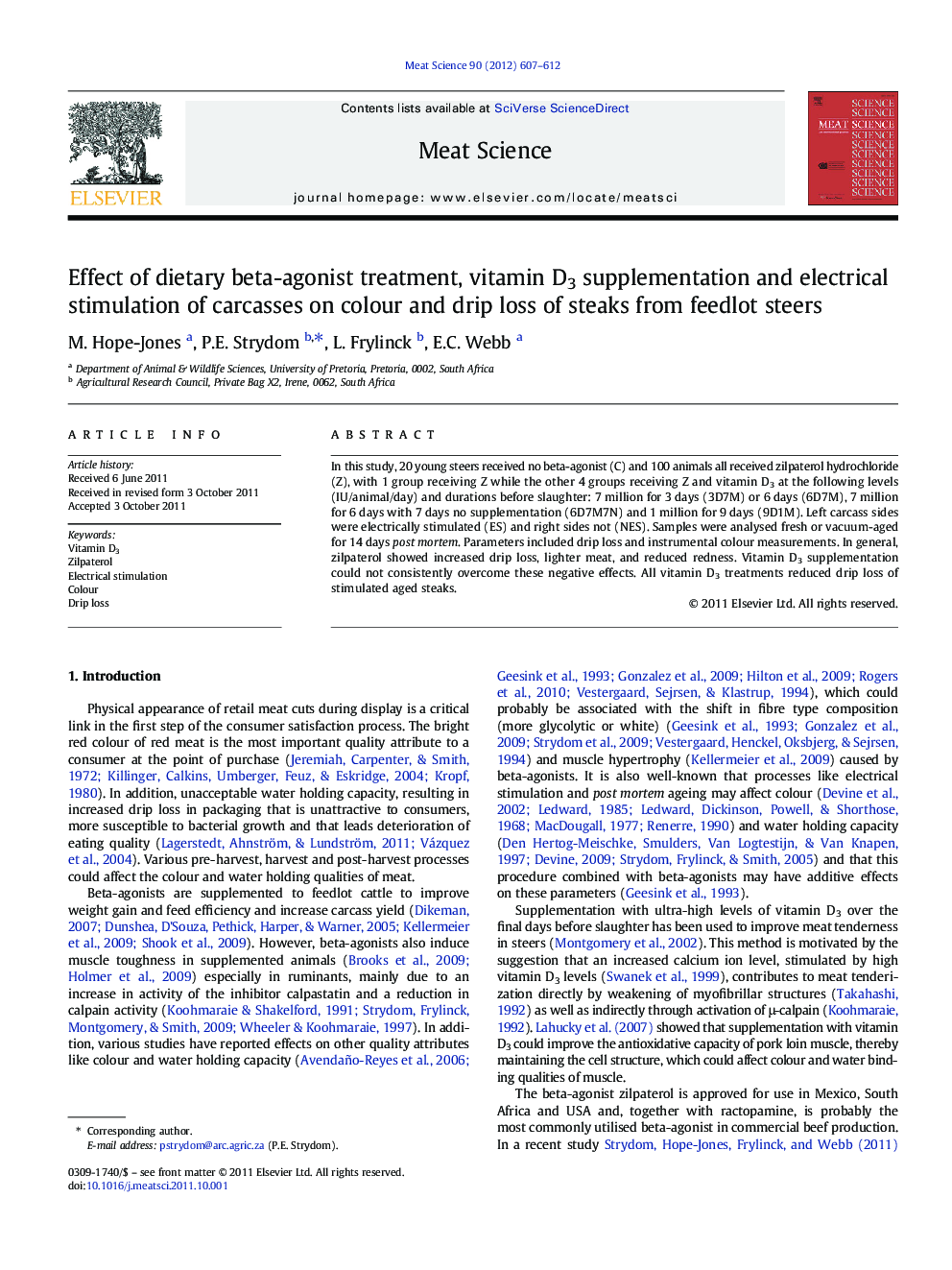| Article ID | Journal | Published Year | Pages | File Type |
|---|---|---|---|---|
| 5792559 | Meat Science | 2012 | 6 Pages |
In this study, 20 young steers received no beta-agonist (C) and 100 animals all received zilpaterol hydrochloride (Z), with 1 group receiving Z while the other 4 groups receiving Z and vitamin D3 at the following levels (IU/animal/day) and durations before slaughter: 7Â million for 3Â days (3D7M) or 6Â days (6D7M), 7Â million for 6Â days with 7Â days no supplementation (6D7M7N) and 1Â million for 9Â days (9D1M). Left carcass sides were electrically stimulated (ES) and right sides not (NES). Samples were analysed fresh or vacuum-aged for 14Â days post mortem. Parameters included drip loss and instrumental colour measurements. In general, zilpaterol showed increased drip loss, lighter meat, and reduced redness. Vitamin D3 supplementation could not consistently overcome these negative effects. All vitamin D3 treatments reduced drip loss of stimulated aged steaks.
⺠Beta-agonists change muscle fibres and could affect muscle colour and drip loss. ⺠Electrical stimulation and post mortem ageing could exacerbate these effects. ⺠Ultra high vitamin D3 levels may improve colour and water binding properties. ⺠Vitamin D3 reduced drip loss when samples were aged and electrically stimulated. ⺠Vitamin D3 could not improve colour properties of beta-agonist treated beef.
